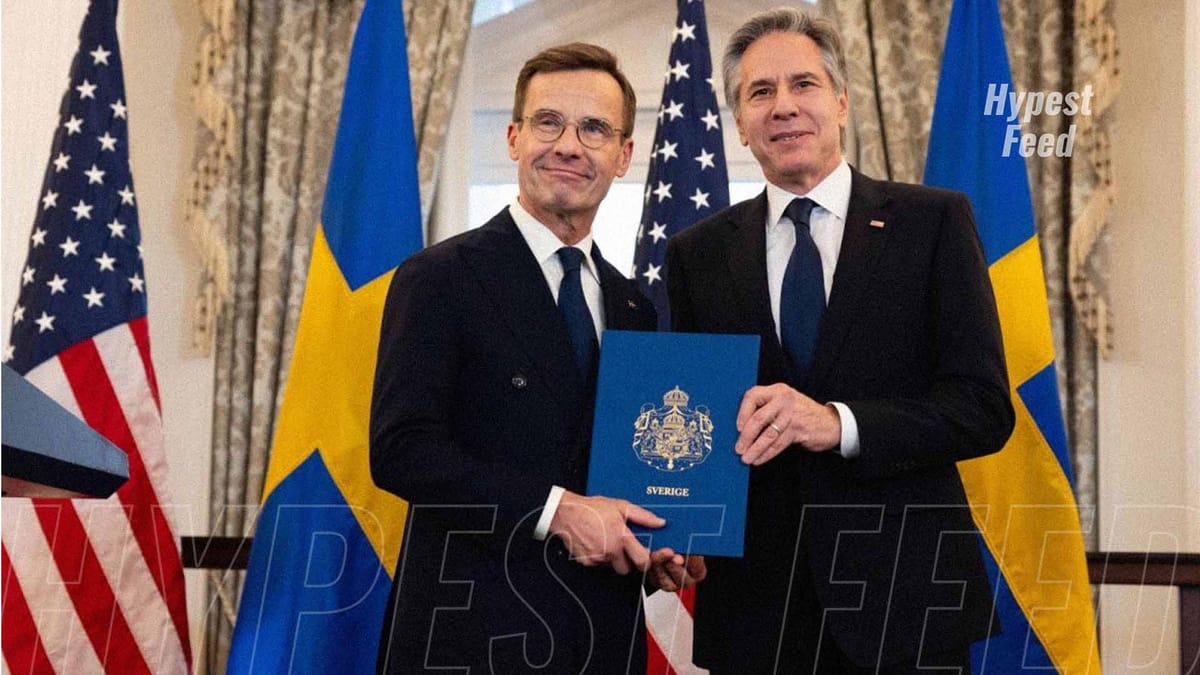After nearly a year of negotiations and debates, Sweden has finally become the 32nd member of the North Atlantic Treaty Organization (NATO), marking a significant development in the ongoing efforts to bolster defense against Russian interests.
Swedish Prime Minister Ulf Kristersson announced the country's official membership in NATO via a statement shared on social media platform X. Expressing gratitude to all allies for their support, Kristersson emphasized Sweden's commitment to unity, solidarity, and burden-sharing within the alliance, while affirming adherence to the core values outlined in the Washington Treaty: freedom, democracy, individual liberty, and the rule of law.
To finalize the accession process, Kristersson traveled to Washington, D.C., where he engaged in discussions with U.S. Secretary of State Antony Blinken. Additionally, he was invited as a guest of honor by First Lady Jill Biden to attend the State of the Union address.
The White House hailed Sweden's accession to NATO, citing the country's robust democracy and advanced military capabilities as significant assets that align with the alliance's values and global vision. Emphasizing the enhanced security benefits of having Sweden as a NATO ally, the White House underscored the reinforcement of collective defense efforts.
With its state-of-the-art submarines and Gripen fighter jets, Sweden assumes a pivotal role as a strategic link between the Atlantic and the Baltic states during periods of crisis, as noted by Reuters. Despite long-standing hesitations, Sweden's decision to join NATO, driven partly by Russia's aggression in Ukraine, reflects a shift in security dynamics in the region, prompting both Finland and Sweden to reassess their previous stance on alliance membership.
While Finland's path to NATO accession in April 2023 was relatively smooth, Sweden encountered hurdles along the way. NATO's requirement of unanimous member approval posed challenges, with Turkey and Hungary initially expressing reservations. Turkish President Recep Tayyip Erdogan outlined specific conditions for Sweden's acceptance, including addressing concerns related to Kurdish militants and entities linked to a 2016 coup attempt. Overcoming these obstacles, Sweden implemented measures to address Turkish concerns, such as lifting an arms embargo and collaborating on counterterrorism efforts.
In addition to Turkey's concerns, Hungary's reluctance to support Sweden's NATO membership stemmed from political differences and criticisms directed at the Hungarian government and Prime Minister Viktor Orbán. This friction underscored the complexities involved in NATO's decision-making process and the diplomatic maneuvering required to secure consensus among member states.
While Orbán endorsed Sweden's admission to NATO, some members of his party did not share his enthusiasm. Orbán maintained that Sweden's membership would enhance Hungary's security.
Following pressure from the U.S. and NATO allies, Turkey eventually withdrew its opposition, clearing the path for Sweden's entry into NATO. With all obstacles removed, Sweden's accession to NATO has materialized, causing frustration for Russia and Putin.



Member discussion: